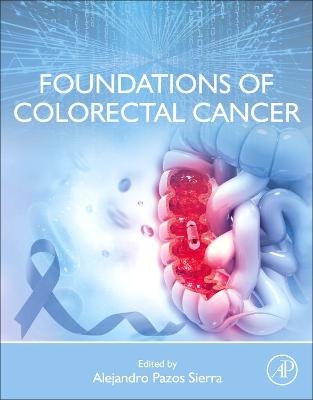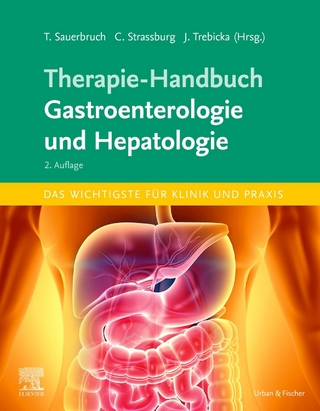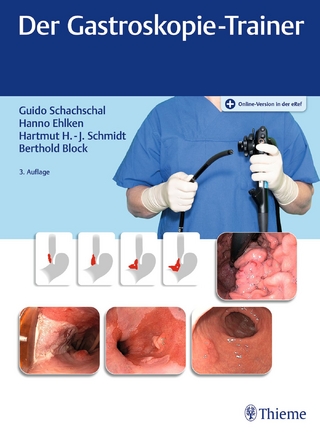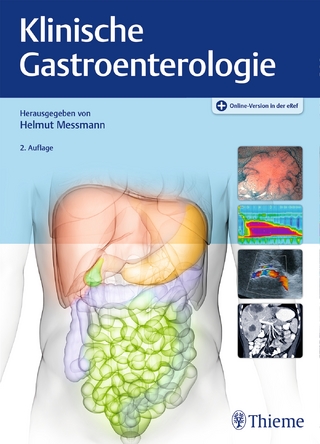
Foundations of Colorectal Cancer
Academic Press Inc (Verlag)
978-0-323-90055-3 (ISBN)
The content is split into nine sections: Clinical manifestations and disease detection, covering primary and secondary prevention, and the role of primary care; Diagnosis and staging, discussing endoscopy, colonoscopy, molecular pathology, and anatomopathological diagnosis; Treatment, including endoscopic, surgical, radiological, and postoperative approaches; Molecular and biological mechanisms, with the role of intestinal microbiota, stem cells and signaling pathways; New diagnostic methods, encompassing biomarkers and bioinformatics tools for research; Biobanks, with an overview of their regulations and importance in the research; Epidemiological studies, focusing on incidence and mortality globally and by regions; Hereditary colorectal cancer, differentiating nonpolyposis and polyposis types; and Addressing the consequences of colorectal cancer, covering psychological effects, nutrition and ethical issues.
Prof. Dr. Alejandro Pazos Sierra MD, Ms, PhD was graduated in Medicine at the University of Santiago de Compostela (USC) in 1987 and received his Master in Knowledge Engineering at the University Polytechnic of Madrid (UPM) in 1989 and his Doctor Degree in Computer Science, at the UPM in 1990. In 1996, he also received his doctorate in Medicine and Surgery from the Complutense University of Madrid (UCM). Since 1989, he has worked with several research groups from institutions such as Technological Institute of Georgia, the Harvard Medical School, Stanford University, and University of Aveiro (Portugal). Since 1999, he is Full Professor in the Faculty of Computer Science at the University of A Coruña. In 1995, he founded the Laboratory of Artificial Neural Networks and Adaptive Systems (RNASA-IMEDIR). From foundation, twelve years ago, he is also the coordinator of the Galician Research Network of Colorectal Cancer (REGICC)
SECTION I. Clinical manifestations and disease detection1. Primary prevention of colorectal cancer2. Population-based universal screening for CRC. Secondary prevention3. The role of primary care in early referral of CRC patients4. Fast patient referral with suspected CRCSECTION II. Diagnosis and staging5. Endoscopic diagnosis of colorectal cancer6. Colon endoscopic capsule7. Endoscopic ultrasound in colorectal cancer8. Virtual colonoscopy. Colo-CT9. Colorectal cancer staging: ultrasound and multislice CT10. Applications of [18F] FDG PET and PET-CT in colorectal carcinoma11. MRI of rectal adenocarcinoma12. Molecular pathology of colorectal carcinoma13. Anatomopathologic diagnosis of CRC14. Colonoscopy. Technique and quality factors15. Endoscopic diagnosis of preneoplastic and neoplastic lesionsSECTION III. Treatment16. Multidisciplinary committee for a comprehensive approach to colorectal cancer patients Endoscopic treatment17. Endoscopic treatment of preneoplastic or early lesions18. Endoscopic monitoring19. Advanced endoscopy in CRC. Colorectal prostheses Surgical treatment20.? Surgical Emergency in RCC21.? Experimental surgery in RCC22. Colon and rectal cancer surgery23. Treatment of liver metastases in colorectal cancer Pharmacological treatment and radiotherapy24. Chemotherapy in advanced and metastatic disease25. Adjuvant chemotherapy in colorectal cancer26. Oral administration of cytostatic drugs for colorectal cancer treatment27. Complementary and intraoperative neoadjuvant chemotherapy in rectal cancer28. Immunology and immunotherapy in colorectal cancer Anesthetic and postoperative management29. Multimodal rehabilitation: optimizing pre and intraoperative surgery in colorectal cancer30. Postoperative management: Complications and critical care unit management31. Pain units: Symptom controlSECTION IV. Molecular and biological mechanisms of CRC32. The role of intestinal microbiota in the colorectal cancer33. Genetic susceptibility to colorectal cancer and chemotherapy response34. Stem cells and colon cancer35. Signaling pathways in colon cancer36. Colorrectal Cancer a Darwinian the Celular Inmune-Selection Model37. Epithelial-mesenchymal transition and colorectal cancerSECTION V. New diagnostic methods38. Biomarkers39. Bioinformatic tools for research in colorectal cancer40. Omic-based Biomarkers for Colorectal CancerSECTION VI. Biobanks41. Regulations regarding the use of human biological samples for research42. The role of biobanks in the study of colorectal carcinoma SECTION VII. Epidemiological studies in CRC43. Incidence and mortality of colorectal cancer : an international and regional vision44. Prognosis and follow-up of colorectal cancer patients. Role of diagnostic and therapeutic delaySECTION VIII. Hereditary colorectal cancer45. Hereditary nonpolyposis colorectal cancer46. Hereditary polyposis colorectal cancerSECTION IX. Addressing the consequences of CRC47. Addressing and psychologically controlling the disease48. Ostomy care49. Fecal incontinence and colorectal cancer50. Ethical issues in CRC diagnosis and treatment51. Sexuality in Ostomized Digestive Patients (Sexual Dysfunction in the Ostomized Patient)
| Erscheinungsdatum | 02.11.2021 |
|---|---|
| Zusatzinfo | 350 illustrations (200 in full color); Illustrations |
| Verlagsort | Oxford |
| Sprache | englisch |
| Maße | 216 x 276 mm |
| Gewicht | 1770 g |
| Themenwelt | Medizinische Fachgebiete ► Innere Medizin ► Gastroenterologie |
| Medizin / Pharmazie ► Medizinische Fachgebiete ► Onkologie | |
| Naturwissenschaften ► Biologie | |
| ISBN-10 | 0-323-90055-0 / 0323900550 |
| ISBN-13 | 978-0-323-90055-3 / 9780323900553 |
| Zustand | Neuware |
| Haben Sie eine Frage zum Produkt? |
aus dem Bereich


